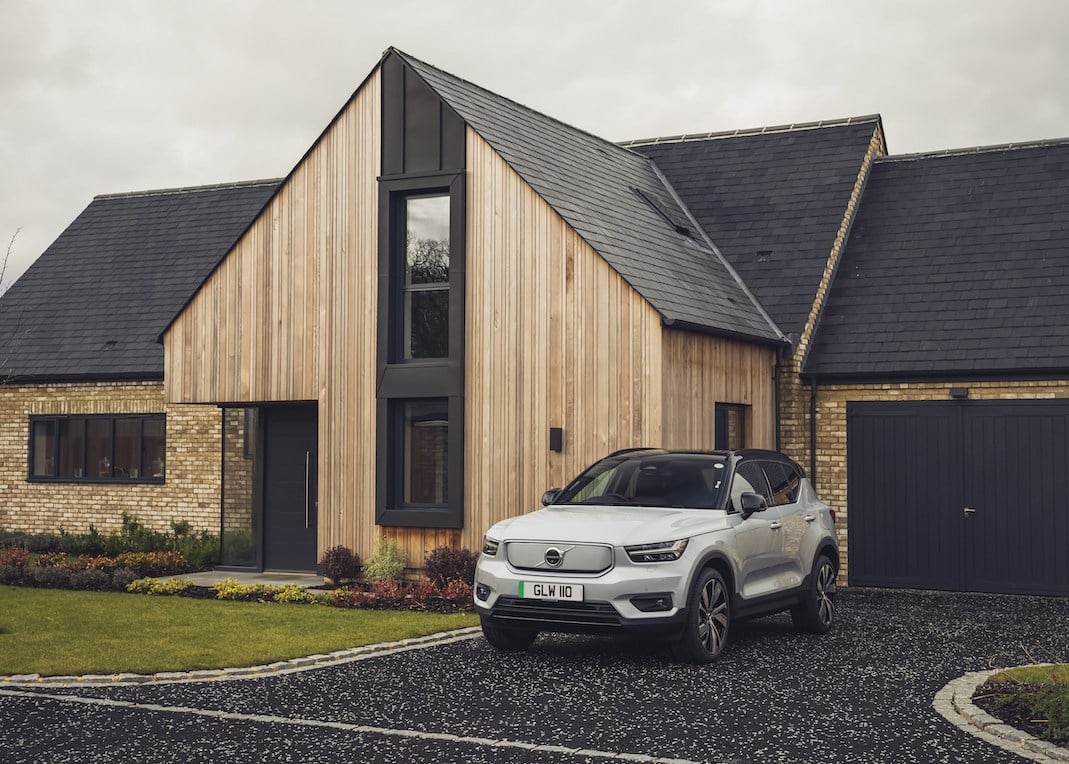Volvo Cars started production in 1927, manufacturing spacious cars compact with innovative, safety
technology integrated into the car’s DNA.
Today, Volvo focuses on three key areas: safety, sustainability and innovative design. Being a Swedish brand, Volvos are Scandi-inspired in design, bringing outdoor elements inside to create a peaceful, relaxing driving experience. Volvo Cars has always been a driver for change in the automotive industry, for both safety and sustainability. The iconic, lifesaving three-point seatbelt was created back in 1959 by Volvo engineer Nils Bohlin, by purposefully not patenting the design, Volvo recognised that safety was for all and not a point of difference for sales. Keeping people safe inside and outside of the car is remains a priority for Volvo.
The first of five fully electric cars to be launched by our brand over the next five years is the Volvo’s small family SUV the XC40 Recharge pure electric.
The cart is capable of travelling up to 249 miles on a single charge which, on average, covers the distance of an everyday commute for five working days, and can be charged up to 80% capacity in as little as 40 minutes using a fast charger. Being an electric car, it will deliver significant savings to owners in running costs, as well as tax benefits. The interior of the poweredall-electric XC40 also carries over the strong focus on sustainability from other variants, with the door linings and carpets made from 97% recycled plastic bottles.
The Volvo XC40 Recharge features a number of some premium features, including a Google-based infotainment system which incorporatiesng the voice-activated Google Assistant to control a number of the car’s functions and enables you to search for the nearest charging point to you using Google Maps. It also has and a powered boot lid, which can open by foot (simply kick underneath the centre of the tailgate and the boot opens automatically, perfect for when you’ve got your hands full).
The interior design is Scandivan-inspired, incorporating earthy tones and a panoramic
roof to let plenty of light in (on selected model specifications only), and spacious with additional storage found in the front of the car and plenty of space in the back to fit car seats.
To Volvo Cars, sustainability is as important to Volvo Cars as safety is, so much so that the company aims to become carbon neutral by 2040 in all areas of the business, including its manufacturing network and supply chain. Electrification is an important element of combatting carbon emission in the automotive industry. Volvo has one of the most progressive, ambitious electrification strategies in the industry; to
become fully electric car company by 2030. Already by 2025, it aims for 50 per cent of its global sales to consist of fully electric cars, with the rest hybrids. Electrification is the future of automotive, and Volvo is proud to be one of the leading car brands in this sphere.
Volvo Cars believes that we are facing our toughest safety test yet: climate change. Therefore, they are working hard to create new and develop existing internal processes which contribute to environmental wellbeing.
By setting transparent goals and communicating our ambitions openly, Volvo Cars wishes to promote sustainable, and safe, living practices, with the aim of protecting the environment for future generations to come.



COMMENTS ARE OFF THIS POST